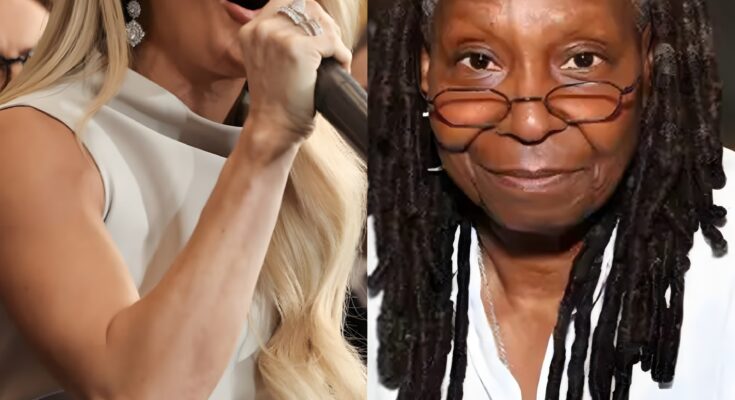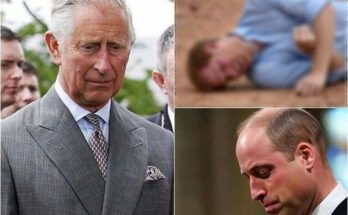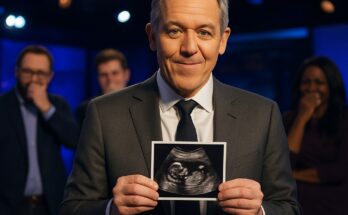Carrie Underwood Stuns the Public with Lawsuit Against The View Hosts
Country music superstar Carrie Underwood has made a significant move by suing the hosts of The View following their public criticism of her choice to perform at President Donald Trump’s inauguration. This surprising legal action has created a stir in both the entertainment and media sectors, igniting discussions about freedom of speech, media ethics, and the limits of public commentary.
In today’s video, we explore the controversy that began with Underwood’s announcement of her performance and quickly escalated into a media frenzy, particularly after Joy Behar questioned her patriotism. Did The View overstep its bounds? Or is this simply a consequence of being in the public eye? Stay tuned as we analyze the situation in detail.
The Debate Surrounding Carrie Underwood: Advocating for Freedom of Expression
In the realm of country music, few artists are as beloved and respected as Carrie Underwood. Renowned for her exceptional vocal talent and emotional songwriting, Underwood has typically avoided political disputes. However, her recent choice to perform at Donald Trump’s inauguration has sparked significant backlash, especially from the hosts of The View. This criticism has not only thrust Underwood into the limelight but has also raised crucial issues regarding freedom of expression, media accountability, and the dynamics of public critique.
The controversy ignited when Underwood announced her involvement in the inauguration, expressing, “I love our country and am honored to be a small part of this historic event at a time when we must all come together.” Her message was one of unity through music. Nevertheless, many interpreted this as a tacit endorsement of Trump’s presidency, a subject that has deeply divided American society. Social media was ablaze with varied responses, as some fans rallied in support while others called for boycotts, branding her a “MAGA artist.”The controversy intensified when the hosts of The View expressed their opinions. Joy Behar, a key figure on the show, questioned Carrie Underwood’s intentions, implying that her performance was a strategic effort to legitimize Trump’s policies. This assertion ignited anger among Underwood’s supporters, who felt the hosts had crossed the line from legitimate critique to slander. The situation escalated when Underwood opted to pursue legal action against the hosts, asserting that their comments were unfounded and harmful to her reputation.
This legal action has generated considerable discussion within the entertainment sector. It transcends a mere performance; it represents a commitment to one’s principles amid public criticism. Underwood’s choice to file a defamation lawsuit raises significant issues regarding the limits of free speech. While public figures often face scrutiny, it begs the question: when does criticism transform into defamation?
The ramifications of this case reach beyond Underwood herself. It underscores a rising trend where artists and public figures are increasingly held accountable for their political beliefs and actions. The pressure to align with a specific political narrative can be immense, particularly in an industry that frequently leans to the left. Underwood’s decision to perform at the inauguration was a courageous declaration that challenged the expectations of many within her profession.
Support for Underwood has emerged from unexpected quarters. Country music star John Rich publicly expressed his backing, tweeting, “Carrie Underwood shows grace and class in the face of hate. That’s what being a true artist is all about.” This perspective resonates with many who advocate for artists’ rights to express their views without the threat of backlash or cancellation.
The discourse surrounding Underwood’s performance and the ensuing reactions reflects a broader cultural divide in America. On one side, there are those who argue that artists should leverage their platforms to advocate for social issues.Underwood’s choice to perform at Trump’s inauguration and the ensuing backlash underscore the significance of remaining steadfast in one’s convictions, even amidst intense criticism. Her decision to remain silent during the controversy conveyed a strong message, as she entrusted her legal team with managing the negative response, demonstrating that she would not be swayed by unfounded attacks.
This situation also emphasizes the necessity for respect and accountability within media discussions. While the hosts of The View defended their entitlement to express their views, detractors contended that they crossed into the territory of personal assaults. The aftermath has sparked conversations about the obligation of media organizations to promote constructive dialogue rather than exacerbate divisions.
As the discourse persists, it is crucial to acknowledge that the matters at hand extend beyond Carrie Underwood and her performance. They represent a broader cultural dialogue regarding the role of artists in society, the duties of media platforms, and the need for respectful communication in an increasingly divided environment.
In summary, Carrie Underwood’s performance at Trump’s inauguration has sparked a significant debate that goes beyond the entertainment industry. It highlights the intricate challenges artists encounter when balancing their personal beliefs with their public identities. Regardless of one’s stance on her decision, it is clear that the discussions surrounding her performance have made a profound impact, encouraging us to consider the role of art in bridging divides and promoting understanding in a turbulent political climate.



